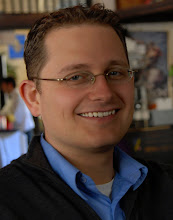Past conversations of Toole’s suicide have been dominated by conjectures of the psychological stressors in his life that he could not resolve. Of course, Thelma Toole (his mother) blamed Robert Gottlieb, the editor at Simon and Schuster. For her, the trauma of a two year correspondence resulting in nothing drove him to madness. Nevils and Hardy (authors of Ignatius Rising) suggest Toole suffered from both a conflicted sexual identity and an overbearing mother, which eventually resulted in his escaping through self-destruction.
But in regards to pondering Toole’s suicide, I have found this question of “why” to be an unsatisfying pursuit. In the end, a single condition, such as a conflicted sexual identity, seems an inadequate reason for suicide. Not to say that such a condition might not contribute to such an act, but labeling a root cause of such a complex act reeks of oversimplification.
I understand the impulse. When someone dies we want verifiable facts, whether it is a biological or psychological condition; we believe the facts will help us cope. But in terms of suicide, these facts rarely achieve a fulfilling answer to the question of “why?” Of course, Toole’s last words might help us better understand, but Thelma destroyed the suicide note that Ken wrote just before he attached the hose to his exhaust pipe; his last words are forever lost.
To better understand the last moments in Toole’s life and his final decision to take his life, I find the writings of Edwin Shneidman most helpful. He is the founder of suicidology and he coined the term psychache. In his book
Suicide as Psychache: A Clinical Approach to Self Destructive Behavior he offers this explanation:
All our past efforts to relate or to correlate suicide with simplistic nonpsychological variables such as sex, age, race, socioeconomic level, case history items (no matter how dire), psychiatric categories (including depression), and so forth were (and are) doomed to miss the mark precisely because they ignore the one variable that centrally relates to suicide, namely intolerable psychological pain; in a word, psychache.
I can already hear the critical reader muttering, “aren’t we just playing semantics here.” Perhaps. But in this case the semantics mean something. To evoke the term “ache” suggests a physical-like pain. This carries a more substantial societal meaning than conditions deemed “emotional.”
Imagine after a battle a soldier’s arm begins to hurt, yet there is no apparent physical injury. The physical pain becomes so overwhelming it consumes his every waking moment. He cannot think, he cannot sleep, he cannot breath without an all-consuming pain penetrating through his arm. And let us also assume doctors have no drugs that relieve him of this pain. Eventually, he might consider and perhaps desire an amputation. His actions to relieve his pain would be drastic, but understandable. The reason for the amputation is not the battle, but rather the insufferable pain. And ending his arm's "existence" is not escapism, but a desperate measure to end his suffering.
So why should we not use the same sympathy and understanding when we discuss suicide, in this case, Toole's suicide?
As I consider Toole’s tragic end, I find more meaning in understanding his final decision as a way to relieve his overwhelming psychological pain—not the end result of a diagnosable condition. Discussions of the trauma of artistic rejection or conflicted sexual identity in relation to his suicide are disingenuous until we address this notion of psychache. Indeed, the greatest tragedy of the story is not how he committed suicide, but rather that he felt there was no way to cope with the pain that consumed him. His end was awful, but his suffering leading up to that final moment must have been equally so.


